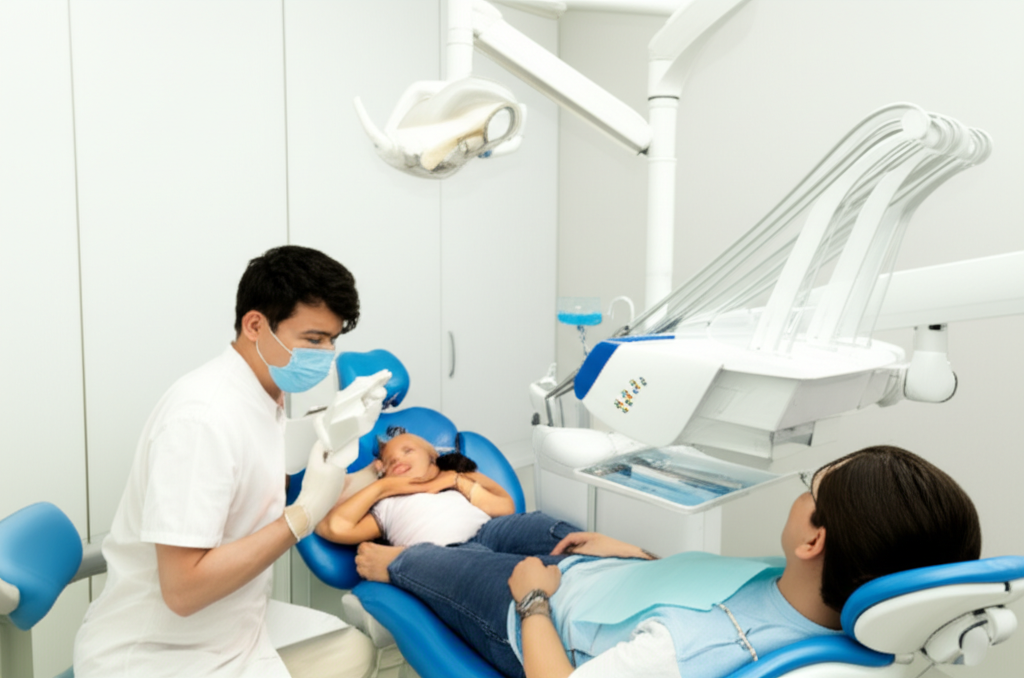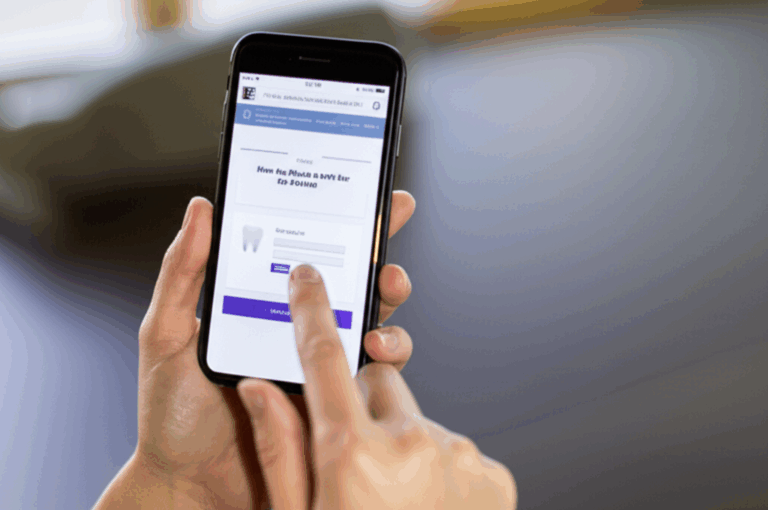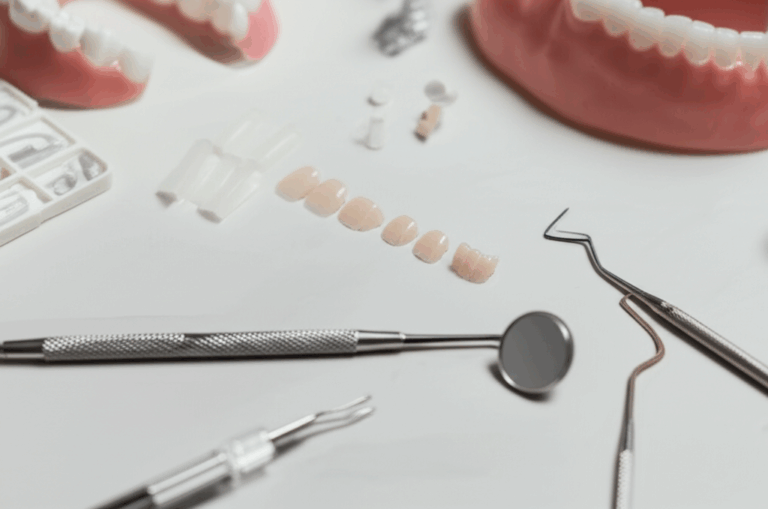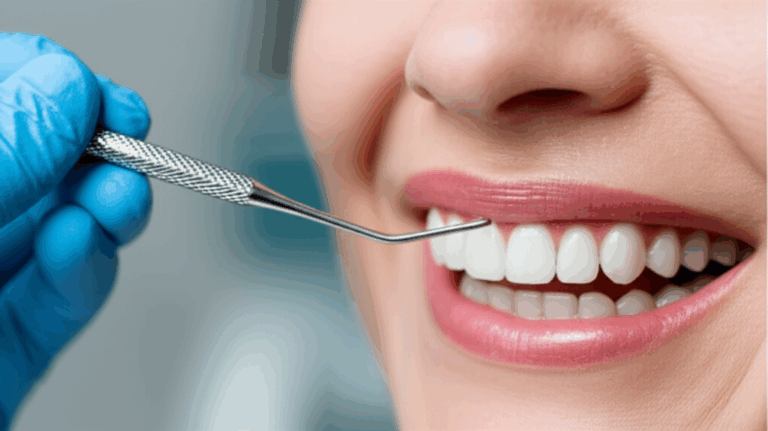
How to Book a Dentist Appointment When Not Registered: Your Simple Guide
Table of Contents
- What “Not Registered” Really Means
- Is This a Dental Emergency or Can It Wait?
- How Do I Get Emergency Dental Care When I Am Unregistered?
- Where Can I Book a Non‑Emergency Appointment Fast?
- How Do I Find a Private Dentist Near Me Today?
- Can I See an NHS Dentist as a New Patient?
- Are Dental Schools or Teaching Clinics a Good Option?
- What Should I Prepare Before I Call or Book?
- What Will Happen at My First New‑Patient Visit?
- How Do I Handle Costs, Insurance, and Payment Plans?
- What If I Still Can’t Find a Dentist?
- Pro Tips To Secure Future Care and Avoid Emergencies
- Simple Call Scripts You Can Use Right Now
- Quick Data and Case Notes
- FAQs
- Key Takeaways
You need a dentist now. You are not registered. You feel stuck. I get it. I have been there after a move. In this guide, I’ll show you how to get seen quickly even if you don’t have a dentist right now. You’ll learn what counts as an emergency, where to go, how to book, what to say, and how much it might cost. Read this now and you’ll know what to do in minutes.
What “Not Registered” Really Means
Problem: You moved, your old dentist stopped working, or you just haven’t been in years. You think you must “register” before anyone will see you. That word can scare people. It sounds slow and hard.
Agitate: Pain won’t wait for forms. Swelling won’t wait for paperwork. You need help now. Waiting lists can be really long. Some dentists say they can’t take new people. You call and get told no. You feel lost.
Solution: Most places will see new people. For private care, you often don’t “register” first. You book an appointment, fill in new patient forms, and the dentist checks your teeth and tells you what’s wrong. For NHS care in the UK, you don’t stay “registered” forever. You are seen for a “course of treatment.” Then you can go back for check-ups and cleaning. Community Dental Services also help kids and those who need extra help. If you need urgent care, you can use an Emergency Dental Service, Urgent Dental Care centre, or a Dental Hospital even if you have no regular dentist.
So don’t let a word stop you. Your teeth matter. You can book a dentist visit even if you haven’t seen one for years.
Is This a Dental Emergency or Can It Wait?
Ask yourself one important thing. Is this life‑threatening or really urgent?
- It is a dental emergency if you have bad pain, bleeding that won’t stop, an abscess with swelling that makes it hard to breathe or swallow, a broken jaw, or if a tooth gets knocked out. You might need out‑of‑hours help.
- It is urgent if you have strong toothache, a broken tooth, a missing filling, or a cracked crown that hurts. You should get seen fast.
- It is non‑urgent if you need a regular check-up, a clean, or a review for gum trouble.
Tip: If you aren’t sure, call 111 for dental advice in the UK. They can help sort things out. If you’re not in the UK, call your local emergency dental service.
If you can’t sleep from pain, if swelling spreads to your face or neck, or if you hurt your teeth or jaw, you should get urgent dental care. You do not need your GP to refer you. Don’t wait if you also have a fever or if swelling gets worse.
How Do I Get Emergency Dental Care When I Am Unregistered?
Here are three quick ways:
Option A: NHS 111 (UK)
- Call 111. They give advice and send you to an urgent dental care centre if needed. You might get a same‑day appointment. They can book you a slot where a dentist or nurse can give pain relief, a short‑term filling, or take out a tooth if that’s needed.
Option B: Go to an Urgent Dental Care Centre or Dental Hospital
- Search for an urgent dental care centre, a walk-in dental clinic, or a dental hospital near you. Many let you walk in even if you’re not a patient. They treat abscess, broken tooth, lost filling, or strong toothache. They often give short-term help for unregistered people. Some are open evenings or weekends.
Option C: Hospital A&E (Only if Really Bad)
- Go to A&E if swelling blocks your airway, you have bleeding that won’t stop after an extraction, a broken jaw, or a bad face injury. They handle emergencies. Most A&Es don’t do normal fillings or crowns. They may give you painkillers or antibiotics and send you to a dentist.
When you go for urgent dental care without registration, take ID, a list of your meds, and a way to pay. Ask about cost before you start. Look up urgent care rules for your area.
Where Can I Book a Non‑Emergency Appointment Fast?
Here are your main options for non‑emergency care:
- Private dentists. This is usually quickest. Many offer online booking and take new people straight away. You’ll get a check-up, X‑rays, and a plan.
- NHS dentists. This usually costs less. It can be hard to find a place taking new patients. Waiting lists can be long. You need to keep trying.
- Dental schools or teaching clinics. Cheaper, but care is by students under a teacher’s eye. Visits can take longer and might not have evening or weekend slots.
You can also look for last-minute or flexible appointments. Check for local emergency dentists who also see non-urgent cases. Many sites now show real-time booking. Try evenings or weekends if you work during the day.
How Do I Find a Private Dentist Near Me Today?
Problem: You want to be seen now. Phones are busy. You need help fast.
Agitate: Pain gets worse. You miss work. You worry about cost. You’re scared about waiting weeks.
Solution: With a private dentist, you can often get in the same day. Search “private dentist near me taking new patients.” Use a dental list. Check reviews. Ask friends. Look for places that mention urgent care without needing registration. Many show their prices and payment choices up front.
Quick plan:
- Call two or three clinics. Say, “I’m a new patient with [toothache/broken tooth/lost filling]. Can I get an appointment today or tomorrow?”
- Ask how much it costs for a first check and X-ray. Ask the price for a quick filling or taking a tooth out.
- Check if they accept walk-ins. Ask about evening or weekend times.
For crowns or bridges, some dentists work with a trusted lab for better results. If you need a crown or bridge, ask who makes it. Good quality can help it last and save money later. For example, some clinics work with reliable partners like a crown and bridge lab for strong and nice results.
If you need a dental implant, ask about lab support and if they use new digital tools for a better fit.
You can also check this guide to find a local dentist and compare your options.
Can I See an NHS Dentist as a New Patient?
Yes, but it can take time.
- The problem: Not all NHS dentists have spaces for new people. Waiting lists can be long. Lots of people looking for a spot.
- How to look: Use the NHS “Find a Dentist” service. Call clinics yourself. Ask if they are taking new patients now. Make a list and call again next week if needed. Spaces open up.
- NHS system: NHS dentists often take you just for a “course of treatment.” That’s different from being registered for life. After your treatment, you book again when a spot opens later.
- Other choices: Community Dental Services help kids, people with needs, or those nervous about dentists. A dental hospital may see urgent cases. Ask your local health group for the rules.
Be clear on the phone. Say, “I have no dentist. I want a new NHS dental appointment.” Ask about the price for someone not registered. Ask what “band” your treatment is. If you can’t find a spot, do private care first, then switch to NHS when you can.
Are Dental Schools or Teaching Clinics a Good Option?
Yes. Training clinics are good for tight budgets.
Good stuff:
- Cheaper prices for checks, fillings, crowns, or root canal work.
- Care checked by a dental teacher.
- Careful exam with X-rays and a clear answer.
Think about:
- Visits take longer. Students work slower.
- Not many evening or weekend times.
- They might not do emergencies—mainly for booked care.
Call the school and ask if they take new people. Ask how it works. Ask what the first check includes.
What Should I Prepare Before I Call or Book?
A little planning can help you a lot.
- Your symptoms. Know what hurts, when it started, what helps or hurts it. “Toothache emergency no dentist” is a common thing to say. Tell them how bad the pain is, if you have swelling.
- Medical history. List any health problems, allergies, and medicines. Don’t forget things like blood thinners or diabetes.
- Your free times. Know a couple of slots you could do. Ask about evenings if you can’t do daytime.
- Your budget. Have a price in mind. Ask how much before you start. Ask about payments by instalment.
What to ask:
- Are you taking new people for an emergency or regular visit?
- How much is the first check or emergency visit? Is there a fee for out‑of‑hours?
- What payment choices do you have? Any payment plan?
- Do I need a referral? (Usually no.)
- Can I book online?
What to bring:
- ID and a way to pay.
- List of your medicines and health issues.
- Old dental records or X-rays if you have them.
- Parent or helper if you need support.
You fill in new patient forms when you arrive. This helps the dentist look after you safely.
What Will Happen at My First New‑Patient Visit?
You check in. You fill in forms. A nurse takes you to the room. The dentist asks about your pain or what you want. Then you get a careful exam.
The exam may include:
- Looking at your teeth and gums for decay, cracks, bad gums, broken fillings.
- Dental X-rays if needed to look for hidden problems.
- Tests for an abscess if you are swollen.
After, you get an answer to what’s wrong. The dentist explains your options. You might need:
- A short‑term filling or a full filling.
- A crown if a lot of the tooth is gone. For a strong fix, ask about options like zirconia or e.max. Some clinics work with a good zirconia lab for long-lasting repairs. If you lost a tooth and need an implant, check a dental implant guide.
- A root treatment to save a tooth with big infection. They might send you to a specialist.
- Tooth removal if it can’t be saved. Later you might plan a bridge, a part denture, or an implant. Some need a removable option first. You could get a night guard if you grind your teeth.
You agree on a treatment plan and cost. You get numbing for comfort. Sometimes you’ll see a hygienist for a clean. Book your next time before you go.
How Do I Handle Costs, Insurance, and Payment Plans?
Money is important here. Ask for a plain list of prices.
- How much is a private dentist check-up? It changes by area. The start-up fee is usually more than NHS. Private moves faster and can offer more types of care.
- How much is emergency care for people without insurance? Ask about prices for the visit, X-rays, and a quick filling. Ask about the cost of taking out a tooth.
- Dentists for people without insurance. Some community clinics have lower costs based on your money.
- Payment choices for people not registered. Many clinics have payment plans. Ask them to explain.
- Insurance for those without a dentist. See if your cover lets you visit any dentist. Ask what paperwork you need.
- Most have a fee list for fillings, root treatment, crowns, or false teeth. Ask before you start.
If you want a crown or bridge, ask who makes it. Strong ones come from a good lab. Many dentists use a special crown and bridge lab for a better fit.
What If I Still Can’t Find a Dentist?
Don’t give up. Try these:
- Call NHS 111 for urgent care centres. Ask about a referral if you need one fast.
- Look on dental websites for “dentist near me no registration” or “dentists taking new people.” Try nearby towns if you can travel.
- Try walk‑in clinics and check for last-minute times.
- Ask Community Dental Services if you can get help. They look after people who need extra support and kids.
- Dental hospitals might see you for tricky cases.
If you are a student, visitor, or not from the area, you can still get help. Some clinics help people without an address. Tell them your situation and ask for the soonest slot.
Pro Tips To Secure Future Care and Avoid Emergencies
- After your first visit, ask to stay on as a regular patient. Book your next check-up before you leave.
- Set reminders for check-ups every 6 months.
- Brush and floss every day and use fluoride toothpaste.
- Ask about spreading out payments.
- If you grind your teeth, talk about a night guard.
- For tricky work like bridges or implants, ask how the dentist plans your case. Many now use digital scanners and a modern lab.
- Good partners improve quality. Ask if your dentist works with a reliable lab for crowns, veneers, or implants.
Simple Call Scripts You Can Use Right Now
Use these when you call or message a clinic:
- “Hi, I’m a new patient and I have bad toothache on the lower right. Are you seeing new people for emergencies today or tomorrow? How much for the first visit and X-rays?”
- “Hi, I moved and need a new patient appointment for a check-up. Any evening times next week?”
- “Hi, I broke a tooth and lost a filling. Any last-minute times today? What are your payment choices?”
- “Hi, my child needs a check-up. Do you see children not registered? Are you taking new NHS patients? If not, can you add us to your waiting list?”
Text for online booking:
- “New to area. No dentist. Need urgent care for swollen gum near upper left molar. Please advise on earliest time.”
Quick Data and Case Notes
Here’s a simple table to help you decide.
| Need | Where to go | What to expect | Cost notes |
|---|---|---|---|
| Bad pain with swelling that blocks breathing | A&E or 111 urgent centre | Breathing checked, antibiotics, urgent care | Hospital care free in emergencies. Dentist visit might have a charge |
| Bad toothache or lost filling | Urgent care or private dentist | Exam, X-ray, quick fix, maybe taking out a tooth | Private fees change a lot. NHS uses set fees |
| Regular check-up | NHS or private dentist | Exam, X-ray if needed, treatment plan | NHS cheaper, private gives more choices |
| Broken tooth or crown off | Private dentist or urgent care | Temp fix, replace crown, plan for a new one | Ask for a price list. Ask about payment plan |
| Kids or special care | Community dentist or teaching clinic | Extra gentle care | Usually lower fees |
Mini case:
- Moved for work, no dentist: A person moved, had no family dentist. They called five clinics. Got an appointment the next morning. They paid for a check and X-ray. Got a temporary filling, booked back in for a full fix.
- Tourist with broken tooth: Visitor broke a tooth, searched “walk-in dental clinic no registration.” Was seen and got a temp crown. Went home later for a new crown.
Professional notes:
- This matches NHS advice on urgent care and 111, WHO advice on getting dental care, and normal dentist practice for exams, planning, and safety.
FAQs
Q: What do I do for really bad tooth pain with no dentist?
A: Call 111 in the UK or local emergency dental number. Use an urgent dental care centre. Don’t wait if your face swells or you get a fever.
Q: Do I need my GP to send me to a dentist?
A: No. You can go straight to a dentist, urgent care, or call 111.
Q: How can I manage pain before my visit?
A: Use over-the-counter pain killers (if you can take them). Rinse mouth with warm salty water. Keep the tooth clean. Don’t have very hot or cold things. If you lost a filling, use a patch from a pharmacy. If face swells or you get a fever, get help quickly.
Q: What happens at a new patient dentist visit?
A: You fill in forms. Dentist does a check-up and may take X-rays. You get told what’s wrong and what it’ll cost to fix.
Q: No dentist will take me. What now?
A: Try more places, look in other towns, ask to go on waiting lists, or use urgent care. Dental schools may help too.
Key Takeaways
- You can get dental care without being “registered.” Private and urgent care centres see new people quickly.
- Call 111 for urgent dental help in the UK. Only use A&E if you cannot breathe or bleeding won’t stop.
- Private care is fastest. NHS care can have waiting, so keep calling or try booking online.
- Get your symptoms, health list, free times, and money ready. Ask about price and paying in steps.
- First visit: fill forms, check-up, X-rays if needed, plan, and cost.
- Protect your teeth. Book check-ups to avoid trouble. Get a night guard if you grind.
- For big fixes, ask which lab they use. Good work lasts longer.
References
- NHS: Urgent dental care and 111 service. https://www.nhs.uk
- World Health Organization: Oral health and access to care. https://www.who.int
- American Dental Association: Dental emergencies and patient advice. https://www.ada.org
- UK Government: NHS dental fees. https://www.gov.uk
Clinician note
This guide matches usual practice for general dentists, hygienists, and nurses for exams, planning, treatment, and when to refer. It fits what urgent dental care, community dentists, and dental hospitals do right now.








